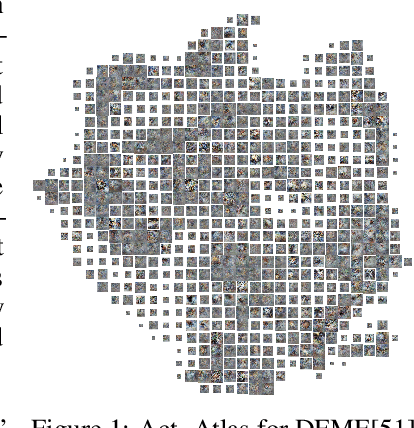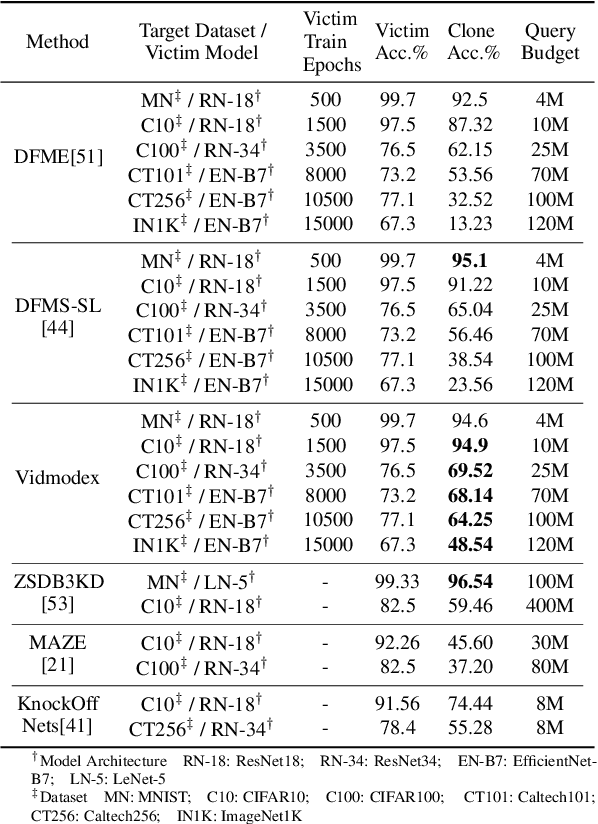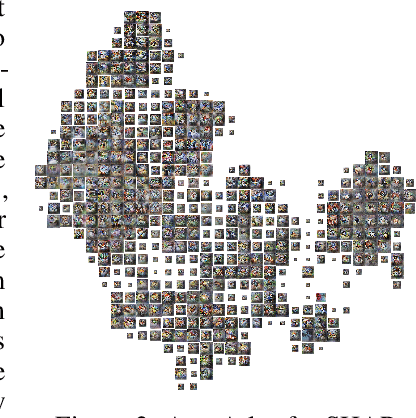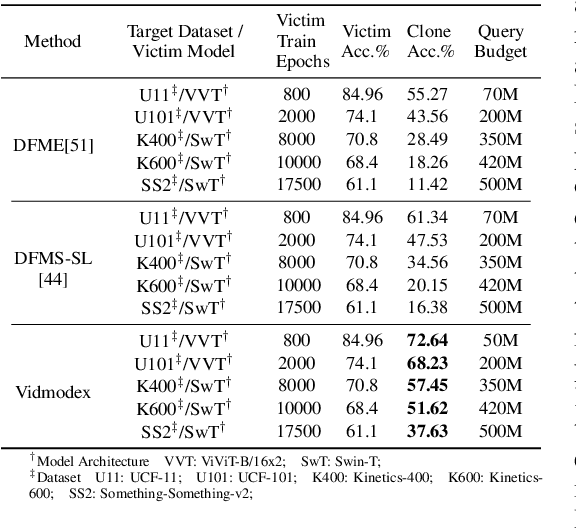Somnath Sendhil Kumar
VidModEx: Interpretable and Efficient Black Box Model Extraction for High-Dimensional Spaces
Aug 04, 2024



Abstract:In the domain of black-box model extraction, conventional methods reliant on soft labels or surrogate datasets struggle with scaling to high-dimensional input spaces and managing the complexity of an extensive array of interrelated classes. In this work, we present a novel approach that utilizes SHAP (SHapley Additive exPlanations) to enhance synthetic data generation. SHAP quantifies the individual contributions of each input feature towards the victim model's output, facilitating the optimization of an energy-based GAN towards a desirable output. This method significantly boosts performance, achieving a 16.45% increase in the accuracy of image classification models and extending to video classification models with an average improvement of 26.11% and a maximum of 33.36% on challenging datasets such as UCF11, UCF101, Kinetics 400, Kinetics 600, and Something-Something V2. We further demonstrate the effectiveness and practical utility of our method under various scenarios, including the availability of top-k prediction probabilities, top-k prediction labels, and top-1 labels.
SwissNYF: Tool Grounded LLM Agents for Black Box Setting
Feb 15, 2024



Abstract:While Large Language Models (LLMs) have demonstrated enhanced capabilities in function-calling, these advancements primarily rely on accessing the functions' responses. This methodology is practical for simpler APIs but faces scalability issues with irreversible APIs that significantly impact the system, such as a database deletion API. Similarly, processes requiring extensive time for each API call and those necessitating forward planning, like automated action pipelines, present complex challenges. Furthermore, scenarios often arise where a generalized approach is needed because algorithms lack direct access to the specific implementations of these functions or secrets to use them. Traditional tool planning methods are inadequate in these cases, compelling the need to operate within black-box environments. Unlike their performance in tool manipulation, LLMs excel in black-box tasks, such as program synthesis. Therefore, we harness the program synthesis capabilities of LLMs to strategize tool usage in black-box settings, ensuring solutions are verified prior to implementation. We introduce TOPGUN, an ingeniously crafted approach leveraging program synthesis for black box tool planning. Accompanied by SwissNYF, a comprehensive suite that integrates black-box algorithms for planning and verification tasks, addressing the aforementioned challenges and enhancing the versatility and effectiveness of LLMs in complex API interactions. The public code for SwissNYF is available at https://github.com/iclr-dummy-user/SwissNYF.
 Add to Chrome
Add to Chrome Add to Firefox
Add to Firefox Add to Edge
Add to Edge